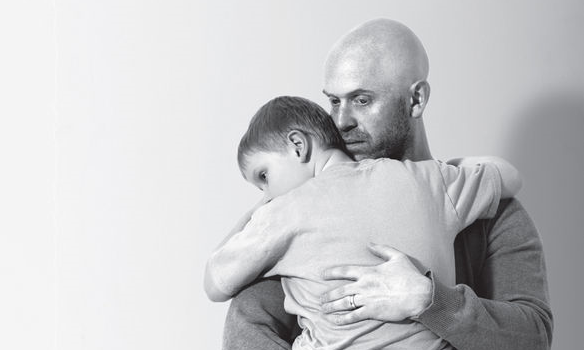Article via Fastcocreate.com by Meg Carter
"I wish my son had cancer," declares a print ad that, as well as raising awareness for the organization behind it, has sparked debate about what is and what is not a suitable tone and sentiment in charity advertising in the days since it ran recently in London’s Evening Standard.
The ad is for Harrison’s Fund–a charity set up by the parents of Harrison, a 6-year-old boy with the degenerative condition Duchenne muscular dystrophy, which is incurable, barely known outside medical circles, and receives little research funding. Its aim is to raise money towards bringing Duchenne therapies to market.

With no marketing budget, creative agency AIS London agreed to work with the charity after Harrison’s Fund founder, Alex Smith, created an ad himself that ran in media space he secured and achieved only limited impact.
"Harrison is the nephew of our marketing and new business director, who sits on the charity’s board," says Geoff Gower, London creative partner at agency AIS. "For now he’s a chirpy 6-year-old. But Duchenne will soon slow his muscular development until, ultimately, his heart will stop–probably before he’s 20."
Initially, the agency’s thinking ran along more traditional lines.
"Because these kids live with the disease [and] they are very cognizant of when they will go, our first thoughts were along the lines of kids writing their own wills," Gower says.
"But this felt rather obvious. All of us felt that, as a parent, surely nothing can be worse? And when we plucked up courage to mention this to Alex, he said it’s just how he felt–and had said it, a number of times–as research into many other conditions is better funded, offering at least a percentage chance of success."
It was, though, a bold line to take.
So the creative team worked closely with Smith to present the sentiment within the ad as a personal perspective. Emphasis was also placed on downplaying the art direction to make the ad look and feel stripped back, not advertisey. The image finally chosen is a photograph taken of Alex and Harrison during a break in shooting.
So far, the finished ad has received considerable support among other parents of children with Duchenne. However, some online comment on the charity’s Facebook page has questioned the merit of, in effect, setting up different childhood illnesses in competition for donors’ support.
"This isn’t and never was about shock tactics or positioning the fund as the charity that rails against other organizations," Gower insists, stressing AIS’s track record working with other charities, including CoppaFeel!, a campaign aimed at promoting breast cancer awareness among young women.
Rather, it’s about presenting the anguish of the situation, in an honest and realistic way, that families like Harrison’s find themselves in. He adds: "The whole thing feels like a very personal quest, which is what it is."
In the week since the ad first ran, at least one other national newspaper–The Independent–has run it for free, prompting ITV and BBC news to carry the story, which, in turn, has helped raise thousands of pounds. Most surprising of all, however, was a piece about the fund produced by the BBC World Service which quickly secured more than £2,000 from . . . Brazil.
The next step is to build on the awareness now raised with a second ad in coming months. "The challenge now is to keep momentum going," Gower says. "And it’s really exciting, because what we have achieved so far is the biggest response we’ve ever had from a piece of advertising so small."













